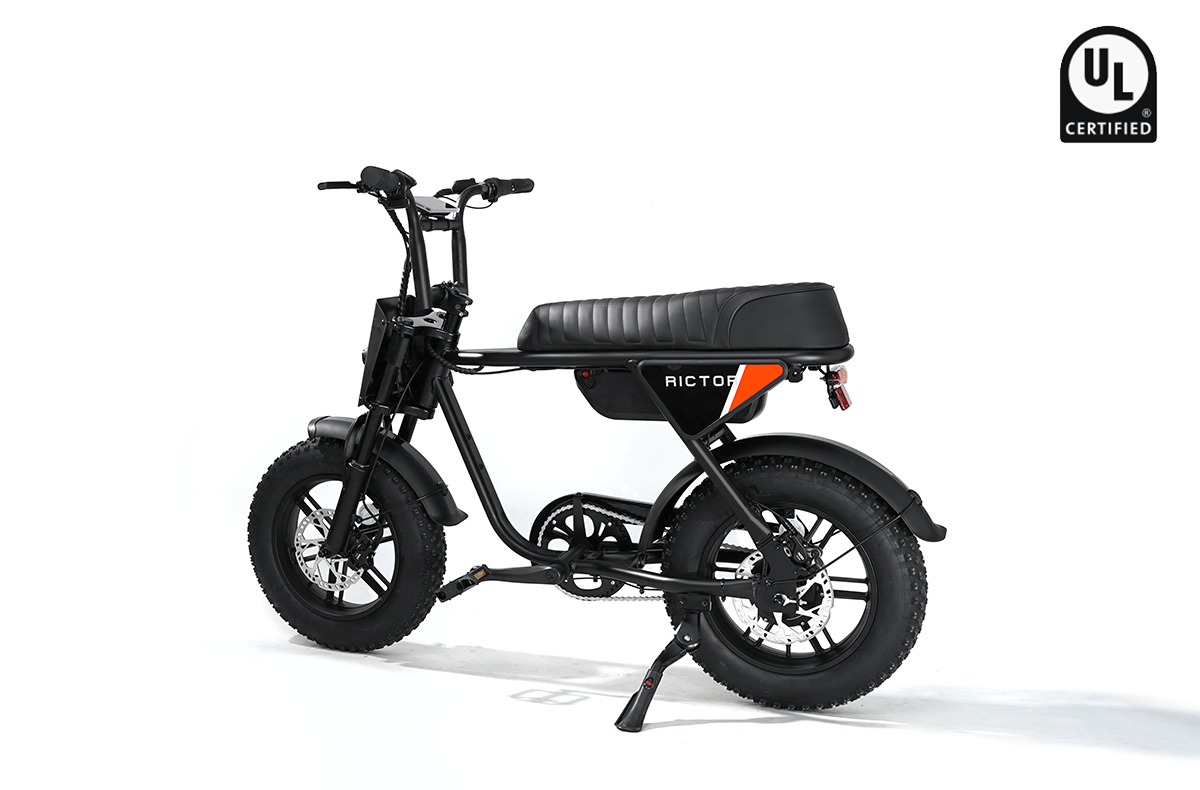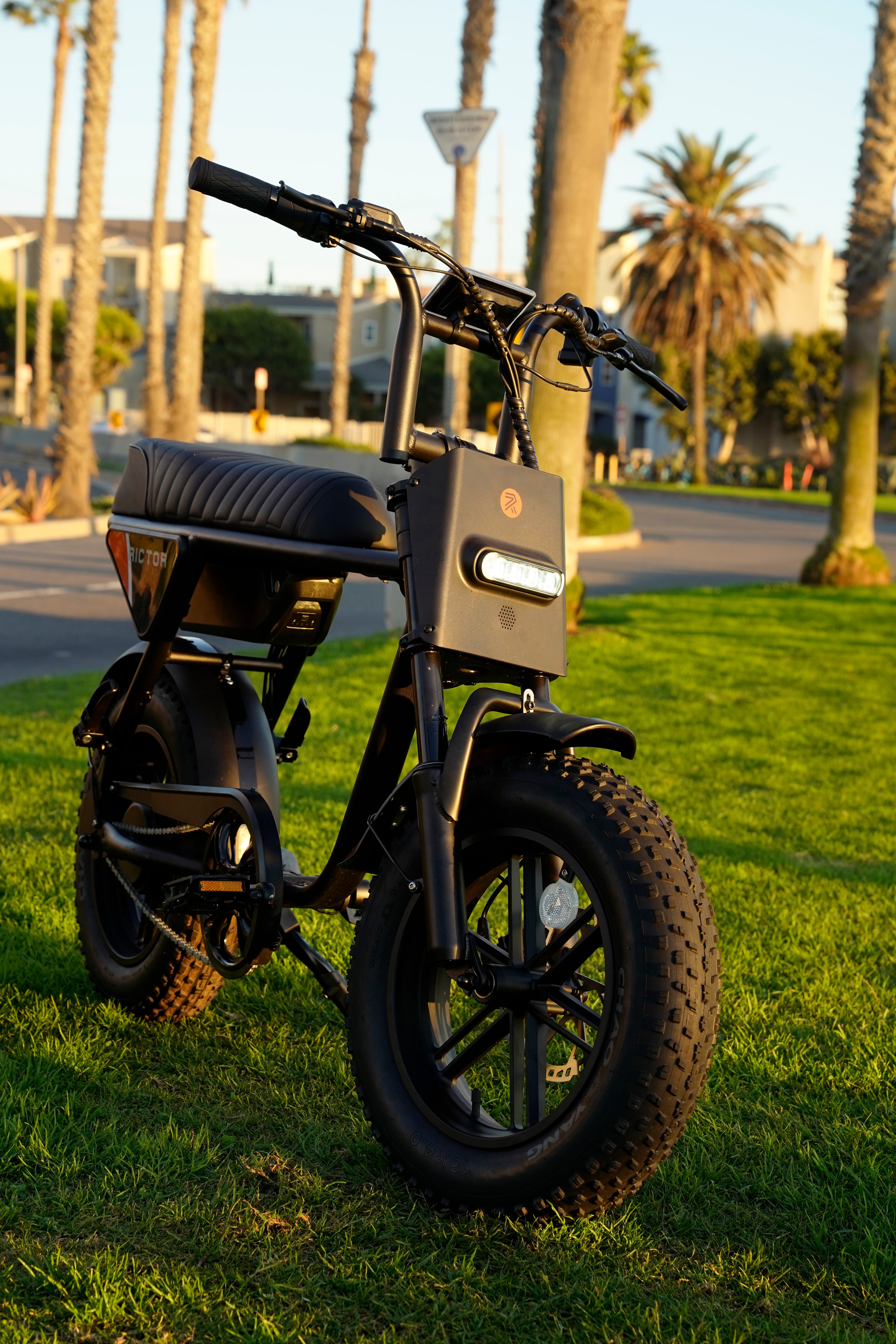
Electric Bike vs. Scooter: Which Ride is Right for You?
Choosing the perfect personal electric vehicle can feel like navigating a bustling city street itself – lots of options, each with its own vibe. The electric bike and the electric scooter both offer a fantastic way to zip around town, ditch traffic jams, and embrace a greener mode of transportation. However, they cater to slightly different needs and preferences. So, let's dive deep into the nitty gritty and help you figure out which electrifying ride deserves a spot in your life.
Power and Performance
When it comes to getting from point A to point B with a little extra oomph, both electric bikes and scooters deliver. Electric bike motors typically range from 250W to upwards of 750W, providing significant pedal assistance that makes hills feel flatter and headwinds a breeze.
You still get a workout, but the electric boost lets you go further and faster with less strain. Think of it as having a superpower for your commute or weekend adventure. The power delivery feels natural and integrated with your pedaling, offering a familiar cycling experience enhanced by electric muscle.
Electric scooters, on the other hand, generally rely solely on their electric motor for propulsion. Power outputs can vary widely, from smaller 250W motors suitable for leisurely rides on flat surfaces to more potent 500W or even 1000W motors that offer brisk acceleration and the ability to tackle steeper inclines.
The riding experience is distinctly different – it's more akin to gliding or surfing on land. You control the speed and acceleration through a throttle, and there's no pedaling involved. This can be a major plus for those who want a completely effortless ride or who may have physical limitations that make pedaling difficult.
SEE ALSO Complete Checklist for DIY Electric Bike Parts

Range and Battery Life
The distance you can travel on a single charge is a crucial factor for any electric vehicle. Electric bikes generally boast longer ranges compared to electric scooters. This is primarily due to the ability to pedal, which conserves battery power and extends your journey.
Depending on the battery capacity, motor efficiency, and how much you pedal, an electric bike can often cover distances of 20 to 50 miles or even more on a single charge. Higher-end models with larger batteries can push this range even further, making them suitable for longer commutes or recreational rides.
Electric scooters typically have shorter ranges, often falling in the 10 to 30-mile ballpark. Battery technology is constantly improving, so these numbers are gradually increasing, but the lack of pedal assistance means the motor is solely responsible for power consumption.
Factors like rider weight, terrain, and speed significantly impact the actual range you'll achieve. For shorter commutes or errands within a few miles, a scooter's range is usually sufficient. However, for longer distances or hilly areas, an electric bike often provides more peace of mind.
Comfort and Handling
The way an electric bike and a scooter handle and feel under you is quite different. Electric bikes, with their larger wheels (typically 26 inches or 700c), offer a more stable and comfortable ride, especially on uneven surfaces. The presence of suspension systems on many electric bike models further absorbs bumps and vibrations, making for a smoother experience.
The upright riding posture on many electric bikes is also generally more ergonomic for longer rides, reducing strain on your back and wrists. You have the added benefit of gears, allowing you to adjust your pedaling resistance to match the terrain and your fitness level.
Electric scooters, with their smaller wheels (usually 8 to 10 inches), can feel less stable on rough roads or cracks in the pavement. While some higher-end scooters feature suspension, the overall ride tends to be less forgiving than an electric bike. The standing riding position can also become tiring on longer journeys.
Maneuverability in tight spaces, however, is a definite advantage for electric scooters. Their smaller size and nimble handling make them excellent for weaving through pedestrian traffic or navigating crowded sidewalks (where permitted).
Portability and Storage
When it comes to stowing your ride, electric scooters generally have the upper hand. Many electric scooter models are designed to be lightweight and foldable, making them incredibly convenient to carry on public transport, store in a small apartment, or bring into an office. Folding mechanisms are usually quick and easy to operate.
Electric bikes, while becoming more compact with folding models available, are generally bulkier and heavier than scooters. Transporting an electric bike often requires a car rack, and storing one in a small space can be more challenging.
Even folding electric bikes tend to be heavier and less compact than their scooter counterparts. If portability and easy storage are top priorities, an electric scooter is likely the better choice.
Cost and Maintenance
The initial purchase price for both electric bikes and scooters can vary widely depending on the brand, features, and specifications. Generally, entry-level electric scooters tend to be more affordable than entry-level electric bikes.
As you move up the scale with more powerful motors, longer ranges, and advanced features, the prices for both types of vehicles increase. High-end electric bikes with premium components can be a significant investment.
Maintenance is another factor to consider. Electric scooters typically have fewer moving parts than electric bikes, which can translate to lower overall maintenance. However, tire punctures and battery replacements are still potential issues.
Electric bikes, with their more complex drivetrains (gears, chains, derailleurs), may require more regular maintenance, although the electric components themselves are generally low-maintenance. The cost of replacement parts for both types of vehicles can vary.
Safety and Regulations
Safety should always be a top priority. Both electric bikes and scooters require riders to be aware of their surroundings and follow local traffic laws. Wearing a helmet is strongly recommended for both. Electric bikes, due to their higher speeds and integration with traffic, often fall under the same regulations as traditional bicycles.
Electric scooter regulations can vary significantly by location. Some areas treat them similarly to bicycles, while others have specific rules regarding where they can be ridden (e.g., bike lanes, sidewalks) and speed limits. It's crucial to understand the local laws in your area before purchasing and riding either an electric bike or a scooter. Visibility is also key, so consider using lights, especially when riding at night or in low-light conditions.
Making the Right Choice
Ultimately, the best choice between an electric bike and an electric scooter depends on your individual needs and priorities.
Choose an electric bike if:
- You want longer range and the ability to travel further.
- You prefer a more stable and comfortable ride, especially on varied terrain.
- You want the option to get exercise while commuting.
- You need to carry more cargo (many electric bikes can be equipped with racks and panniers).
- You are comfortable with the slightly larger size and weight.
Choose an electric scooter if:
- Portability and easy storage are paramount.
- Your commutes are shorter and primarily on smooth surfaces.
- You prefer a completely effortless riding experience.
- Maneuverability in tight spaces is important.
- You are looking for a generally more affordable entry point.
Both electric road bikes and scooters offer exciting and eco-friendly ways to navigate your world. By carefully considering your needs and weighing the pros and cons of each, you can choose the electric ride that perfectly complements your lifestyle.
FAQs
Can I ride an electric scooter on bike paths?
Regulations vary by location. Some areas allow electric scooters on bike paths, while others restrict them to sidewalks or roads. Always check your local laws.
Do I need a license to ride an electric bike?
In most places, standard electric bikes that meet specific power and speed limitations do not require a license. However, high-power electric bikes that exceed these limits may be classified differently.
Are electric bikes or scooters better for hills?
Generally, electric bikes, especially those with higher wattage motors and gears, are better equipped for tackling steep hills due to the combination of electric assist and your pedaling power.




